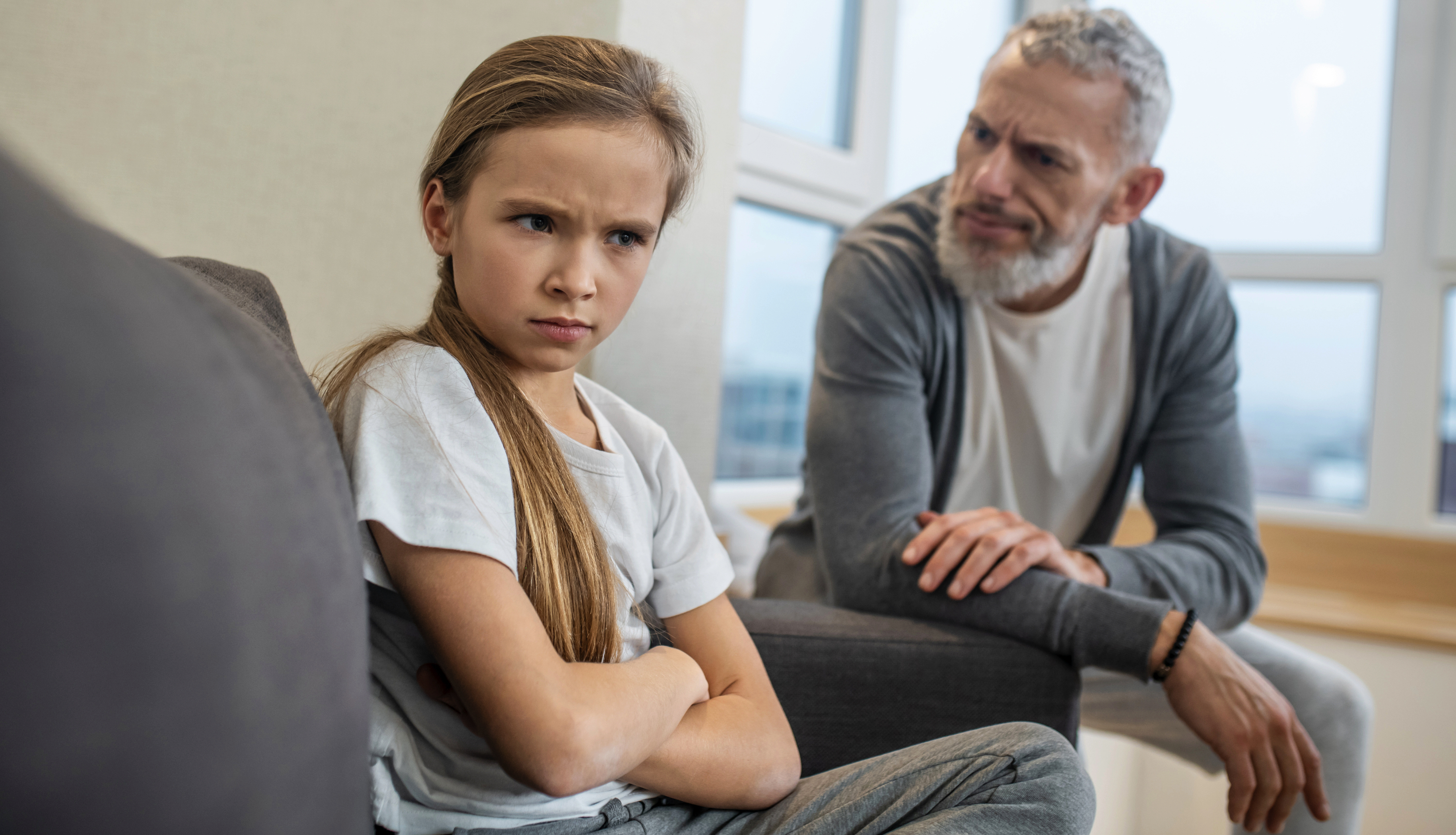California Bans Parental Alienation Treatments
On October 13, 2023, California Governor, Gavin Newsom, signed “Piqui’s Law”, putting it into force. The law is also known as the Safe Child Act. Senator, Susan Rubio sponsored it and the California Legislature gave it unanimous support. Piqui’s Law amends section 3190 of the California Family Code to prohibit judges from ordering any form of family reunification treatment that is predicated on cutting the child off from the primary custodial parent. It also bans any other form of reunification counselling without generally accepted scientific evidence of its safety and efficacy. That requirement effectively bans almost all forms of reunification counselling.
Many professionals and parents have criticized the banned treatments as harmful to children due to the traumatizing nature of the required treatment protocols. Others praise the same treatments as being the only effective way to end a family dynamic of parental alienation. The claimed success of “pschyo-educational workshops” comes from the “tough love” and the requirement that children let go of their favoured parent and memories of their experiences. (See below for a more complete description.) However, there are concerns it is not healthy or appropriate for children to repress experiences of family violence.
In addition to the tragic death of Aramazd “Piqui” Andressian, Piqui’s Law arrises from the U.S. Federal Kayden’s Law, which encourages states to prohibit reunification treatment as a step to combat family violence.

Piqui’s law’s stated purpose is to addressing domestic violence. It starts with a requirement for more training for Family Court Judges on family violence and child abuse. The premise for the law is that Family Court Judges are not sensitive to family violence concerns. Canadian Family Courts also face criticism for not properly addressing family violence.
Parental Alienation and Family Violence
For many years allegations of parental alienation have been linked to Family Violence. But, how the two are linked is a matter of debate.
Piqui’s Law and Kayden’s Law were both based on research showing that perpetrators of family violence can use allegations of parental alienation to gain “custody” of children or perpetuate coercion and control over other family members. (Note the 2021 Family Law Changes put an end to the term “child custody” and focused the law on parenting.) One study involving almost 2200 family court cases with domestic violence allegations, found the courts placed more than a quarter of the children with their alleged abusers. In those cases the courts cited concerns that the alleged victim was alienating the children from the alleged abuser.
In addition to Aramazd “Piqui” Andressian, there have been other horrific examples of Family Courts trying to prevent parental alienation by sending children, unprotected, with their abusers .(At least one notorious case occurred recently in the GTA).
Allegations of parental alienation “suck the air” out of all the other issues in a Family Court case. Judges often feel concerns about domestic violence are less important than allegations of parental alienation. Judges then focus only on repairing a damaged parent-child relationship. They do so either without considering the cause of the problems, or to address concerns over “parental alienation” urgently before the children’s views become cemented.
Since family violence usually occurs in private, there is often a lack of impartial witnesses or other evidence required in Family Court. That can make it difficult for victims to convince judges that family violence occurred. It is also very difficult for parents to disprove allegations of parental alienation. The fact that the child dislikes the other parent and the primary parent is not fixing the problem is often all judges need to see. It can be extremely difficult to get a child to have a positive relationship with a parent who abused that child, or exposed that child to domestic violence. However, a judge may not consider those difficulties when the judge focuses on parental alienation first.
Parental Alienation As Family Violence
On the other side of the debate, this is one line of research that suggests that parental alienation is both a more severe form of child abuse and domestic violence than physical and psychological violence. Professionals and parents who are very concerned about parental alienation say that alienated children do very badly in life. This justifies the court making very intrusive orders to stop it. Parental alienation is a very complex topic. There is more about it on this page.
In addition, there are some academic research and theories, which are not accepted by a lot of people, that say that children inherently love and want to spend time with both parents, no matter what has happened, and even in circumstances of abuse. The extension of that thinking is that the only thing that can make a child not want to spend time with a parent, or even have a bad relationship with a parent, is the deliberate interference of the other parent after separation. Child abuse or exposure to other forms of family violence cannot severely damage a parent-child relationship.
This thinking justifies judges placing concerns over parental alienation before all others. It also narrows down the options for how judges should fix the problem.
The Banned Treatments
Piqui’s Law prohibits judges from ordering any form of reunification treatment for children and parents that either:
- cuts off contact between the child and the child’s primary parent, or
- that does not have generally accepted scientific evidence of its efficacy and safety.
This effectively bans almost all treatments for parental alienation because:
- The social science research about the effectiveness of the most intrusive forms of treatment is very controversial. There has been an abundance of research challenging the effectiveness of the programs that cut off children from their primary parent.
- Many professionals have expressed concerns about the safety of reunification therapy. This is particularly true for the psycho-educational workshops that start with a “reversal of custody.”
- While the California Law does not ban the treatments entirely, it does prevent judges from imposing them. It is extremely unlikely that a “favoured parent” would agree to severing all contact with the children. That is even more so in light of the abundance of negative stories about these treatments online. There are many instances where it is a long time before the children can resume a relationship with both parents, if they ever do.
- Most of the psycho-educational workshops rely on a significant level of coercion. The creators of the programs designed them for children who do not want a relationship with one parent. The prohibition of court orders will undermine the use of force or threat of force required by the treatment protocols. Consequently, the requirement of voluntary participation will make it impossible to treat “alienated children.”

Proponents of reunification therapy programs. especially psycho-educational workshops, say they are effective because they use techniques that many people find shocking and law makers worried are dangerous. The treatment protocols for the programs are “industry secrets” like the formula for Coca-Cola. The programs diligently work to prevent the dissemination of the protocols. However, they do not deny the accounts provided by participants in and outside of court. The protocols include:
- using “security professionals” to physically grab and confine children to take them to the program. The rationale is to effectively convey that the children are not in control of their situation. Critics worry this can mirror family violence or otherwise be retraumatizing.
- telling the children that they will never see their favoured parent again, and will be involuntarily committed for mental health treatment, or got to jail for contempt of court, if they do not demonstrate love for the alienated parent
- requiring that children “surrender past narratives” of their past experiences with the target parent. This may include acknowledging that their memories are incorrect even when supported by independent evidence
- watching videos designed to place the children’s favoured parent in a very unflattering light
- requirements that the children not disagree with, or even question, the alienated parent, with the threat of severe consequences if they do
Are these treatments “good” or “evil”?
As noted above, there is highly conflicting research on the success of these programs. Most of the programs appear to be quite similar, creating few real options to address parent-child contact problems. Proponents say they are often successful in repairing a child’s relationship with the alienated parent. That improved relationship may benefit the child in the long run.
Critics of the programs say they are traumatizing for children. They also assert the programs teach children to submit to the domineering and coercive tactics of abusive spouses or parents. When there are other problems in the family, the programs do not attempt to address them, but rather suppress them with the result that they may explode later.
On that last point, there is agreement on both sides. These treatment programs are only for parental alienation and not for other family problems. Judges should not impose them to solve other problems. But, on a busy court docket, and limited available, or conflicting, evidence, will judges do the necessary investigations or just accept the simple solution proposed by the parent alleging parental alienation?
Will the California Ban Impact Ontario Cases?
Allegations of parental alienation and court remedies requiring intrusive treatment programs are increasingly common in Ontario’s Family Courts. The professionals who run these expensive programs boast success rates that other professionals challenge. For parents with a strained relationship with their children, parental alienation theories offer reassurance that they are innocent of any responsibility for the situation. Controlling or abusive parents can use the allegations to take the focus off their behaviour. For judges, these treatment programs offer a comprehensive solution to a difficult problem. Often the treatment providers even provide the exact terms of the required order.
Neither Ontario nor Canadian Law has placed any form of restrictions on the treatment programs for alienated children. It is likely that favoured parents, through their lawyers, will argue the concerns that led to the California ban on such treatments. However, backlogged judges, who may have limited evidence available about the family, have few options to forcibly repair parent-child relationships. The use of pyscho-educational workshops combined with severing ties with one parent may remain the most attractive of limited options for judges.
Making parenting decisions after separation, especially in high conflict separations, can be extremely difficult. Doing the wrong thing can have horrendous consequences. Before you make any big decisions after separation, read a copy of this $9.99 eBook on Ontario Family Law (paperback also available).
To get the best advice, specific to your situation, you should speak to a family lawyer. Certified Specialist in Family Law, John Schuman, is known for his concern for children in separation and divorce and has won many parenting cases. To contact John call 416-446-5080, email him, or fill out the form below. You can use the same form to comment on this page.


